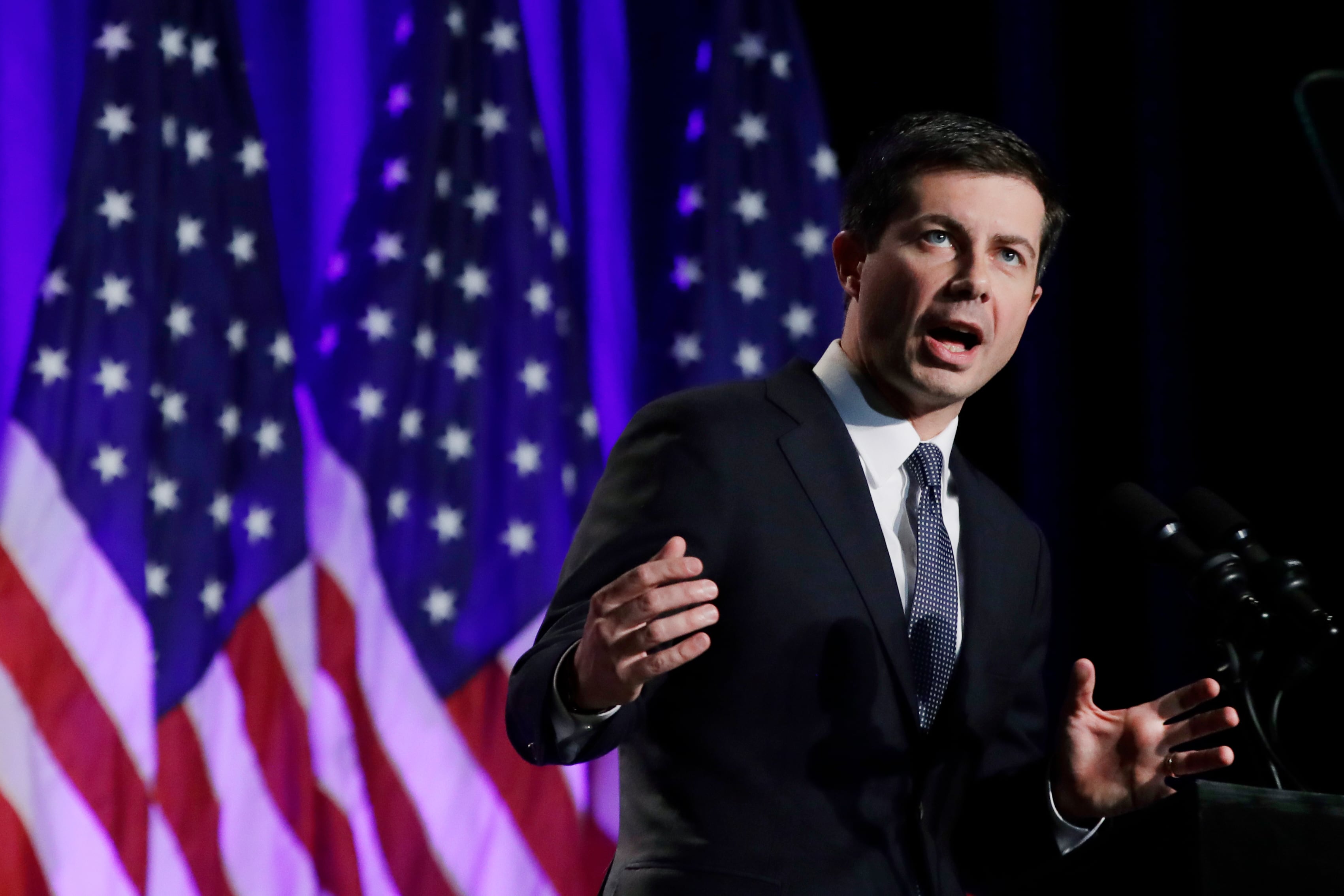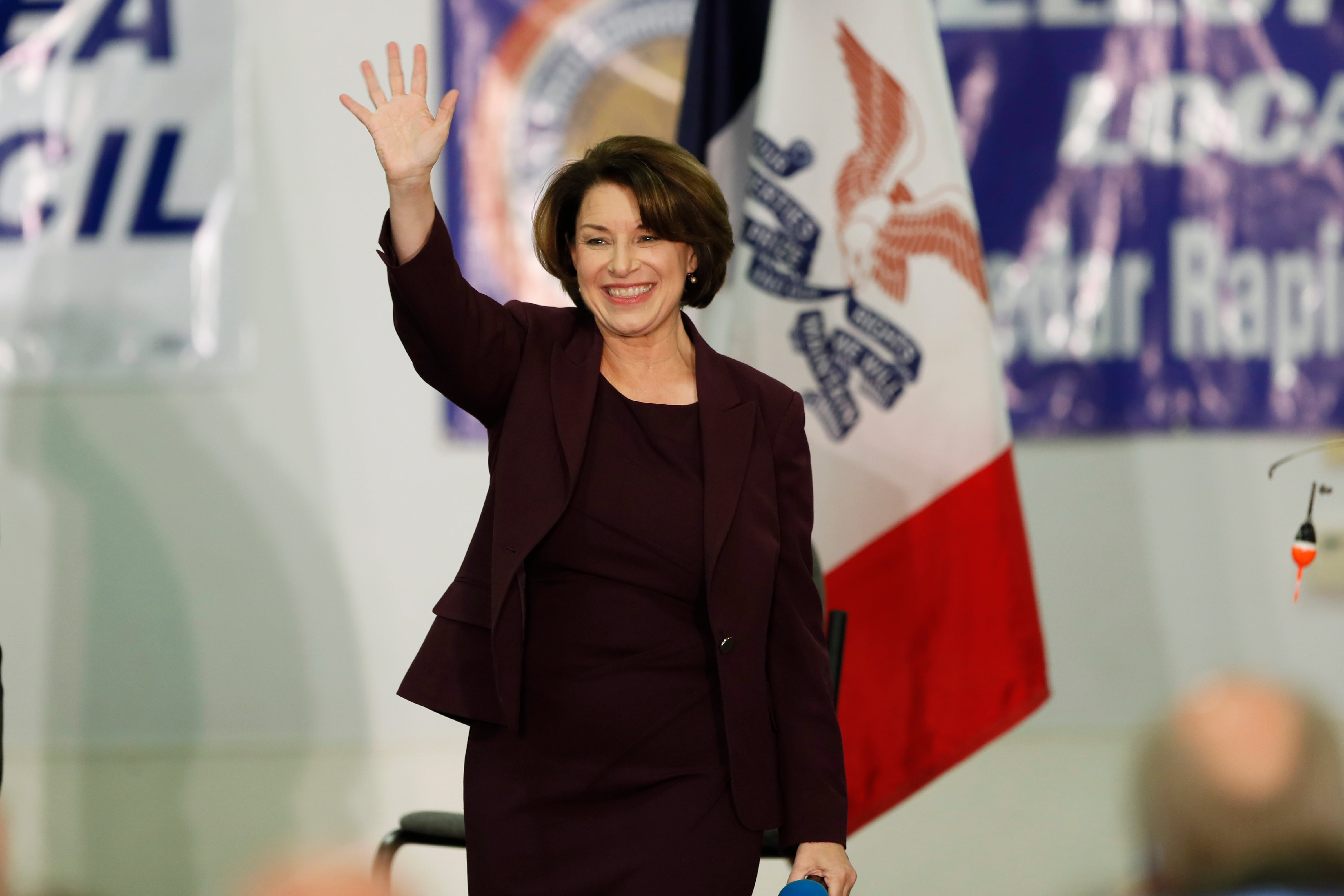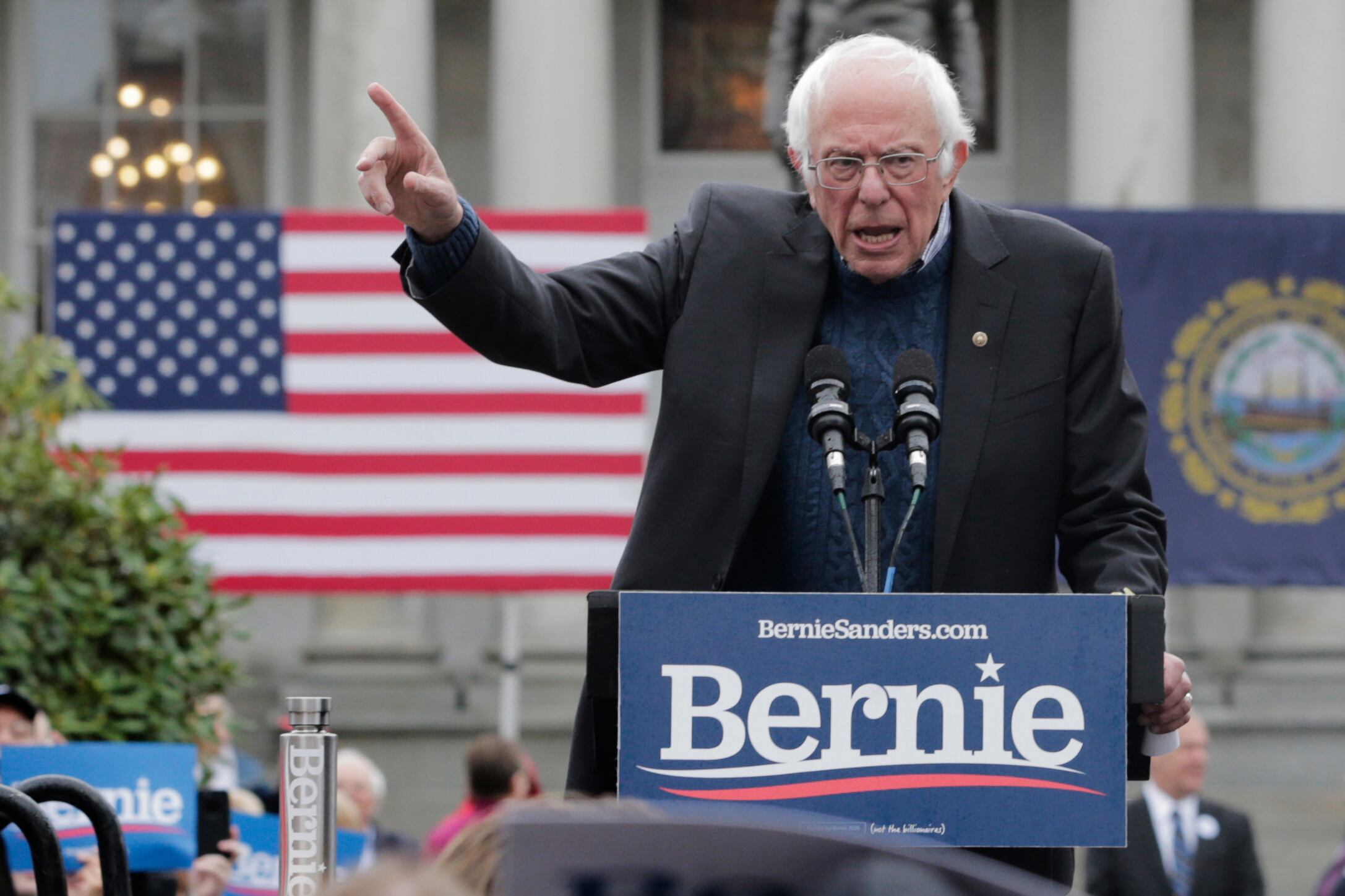WASHINGTON — For months, national security has barely registered on the Democratic debate stage. But that’s about to change.
The U.S.-Iran crisis has thrust foreign policy and national security — rarely decisive factors in elections — into the spotlight. Since President Donald Trump ordered a drone strike against Iranian military official Qassem Soleimani (without consultation from lawmakers), the candidates have blamed Trump for the ensuing crisis, and the entire field has been unified against the possibility of a war with Iran.
Recent days have seen the Democratic candidates lash out at Trump on Iran, as Sen. Elizabeth Warren, D-Mass., ripped Trump’s “reckless actions,” while Sen. Bernie Sanders, I-Vt., said Trump was using “the same old, same old — same lies,” to justify military action. Sen. Amy Klobuchar, D-Minn., said Trump “had better have a strategy” in Iran.
Pete Buttigieg, the former mayor of South Bend, Ind., used his war veteran status to knock Trump’s politically polarizing decision to strike, former Vice President Joe Biden used his experience to blame Trump for bringing the nation “dangerously close” to war, and billionaire Tom Steyer touted his international business experience as he argued the strike left Americans “less safe.”
Beyond Trump, the Sanders campaign has been hitting Biden’s 2002 vote for the Iraq War. As The New York Times noted, the two are happy to contrast foreign policy philosophies — with Biden highlighting his long resume and Sanders emphasizing his long aversion to war.

As the six candidates take the debate stage in Des Moines, Iowa, on Jan 14, they’ll be prepared to both turn foreign policy questions into their perceived strengths and attack Trump’s perceived weaknesses and those of their Democratic rivals, said Andrew Shapiro, a founder of the advisory firm Beacon Global Strategies and former assistant secretary of state for political-military affairs.
“Democrats would like to talk about health care and build on the concerns about Trump’s temperament, demeanor and erratic performance as president — what they view as their two winning issues,” Shapiro said. “However, foreign policy can inject itself into a campaign if a crisis emerges or something occurs that forces its way into the headlines, like the Iran crisis just did in the last couple of weeks.”
“I’d be surprised if both Iran and China didn’t come up during the first part of these debates,” Shapiro said, referencing the pending U.S.-China trade deal.
Foreign policy is rarely a decisive factor in elections, but “terrorism/national security” tied with health care, gun policy and education as an “extremely important” topic with voters in the presidential election, according to a December poll by Gallup, prior to the events in Iran. (To be clear, national security ranked lower with Democrats than with Republicans, who tend to back Trump on the strike.)
Democratic strategists argue that impeachment allegations Trump solicited foreign interference in the election mean Republicans no longer have the upper hand on national security. To boot, 56 percent of Americans (and 90 percent of Democrats) disapprove of Trump’s handing of Iran crisis, according to an ABC News/Ipsos Poll released Sunday.
“Trump’s erratic foreign policy and his attempts to use foreign policy for domestic political benefit offer Democrats the opportunity to be the grown up on foreign policy — and that feeds into the return-to-normalcy campaign Biden is running and Democrats who say they’ll do better without a tweet-a-minute foreign policy,” Shapiro said.
Foreign policy can be a winning issue for Democrats, but the onus is on the candidates both to sell how they would act as commander in chief and prove how they would beat Trump using national security issues, according to Will Goodwin, of VoteVets, a left-leaning political activist group that has endorsed Buttigieg (an Afghanistan War veteran).
“We have helped elect people with national security backgrounds who talked about them every day on the campaign trail, and some of those are the freshman members who helped flip the House back [to Democratic control],” Goodwin said. “From our perspective, given the way Donald Trump has conducted himself, as commander in chief, there is no question the Democratic Party should be speaking from a position of strength on national security and veterans issues.”
Even before facing Trump, Democratic candidates face a competitive race with no clear favorite. A Monmouth poll ranked Biden at 24 percent, Sanders at 18 percent, Buttigieg at 17 percent, Warren at 15 percent, as Klobuchar and Steyer trailed at 8 percent and 4 percent, respectively.

Democratic voters saw Biden, a former chairman of the Senate Foreign Relations Committee, as the candidate they trusted most to handle foreign policy, according to a CNN poll conducted in late November. Biden scored 48 percent to Sanders’ 14 percent, Warren’s 11 percent and Buttigieg’s 6 percent; Steyer and Klobuchar tied at 1 percent.
Still, Sanders, Warren and Buttigieg have criticized Biden’s 2002 vote to authorize military force in Iraq, which Sanders voted against. At the debate, they are likely to make the case that Biden’s experience does not necessarily equate with good judgment.
According to a Rasmussen poll, 39 percent of likely U.S. voters agreed with Trump’s recent statement that, “Iraq was the worst decision. Going into the Middle East was the worst decision ever made in the history of our country.” Among Democrats, the number was higher: 48 percent agreed.
It’s unclear whether Trump can convincingly square that view with his aggressive stance toward Iran.
“At its core, you see the Trump administration framing an argument that says diplomacy doesn’t work [with Iran], and the only thing that does is the use of force or the threat of force. Democrats will most likely articulate an alternative to that — and the question at the debate will be: ‘Who’s most credible to make that argument,’” said Stephen Miles, the director of Win Without War, a coalition of activist groups.
In an interview with The Washington Post in early January, Sanders appealed to primary voters to focus on voters’ appetite for sweeping change and look past Biden’s perceived electability. He pointed to the former vice president’s support of the Iraq War as a negative with young voters.
“He brings into this campaign a record which is so weak that it just cannot create the kind of excitement and energy that is going to be needed to defeat Donald Trump,” Sanders told the Post.

Biden, a politician with a reputation for embracing American use of power in the world, has emphasized restraint and diplomacy in recent remarks. He has claimed he opposed the Obama administration’s expansion of the Afghanistan War, but lost the argument, and he is arguing Trump set the stage for the current crisis by leaving the Iran nuclear deal in 2018.
“Trump has no strategy here. No endgame. The only way out of this crisis is through diplomacy — clear-eyed, hard-nosed diplomacy grounded in strategy, that’s not about one-off decisions or one-upmanship,” Biden said in a recent CNN opinion column. “No one wants war. But it’s going to take hard work to make sure we don’t end up there by accident.”
Miles said he wanted to see the candidates exceed platitudes and articulate plans both to reorient the U.S. relationship with the world and to end the wars in Iraq and Afghanistan, while Goodwin wanted candidates to better address Congress’ role in authorizing war and fixing problems at Veterans Affairs.
“Hearing from these candidates, absolutely, about their specific plans and how they’re going to work with Congress on these issues ― and how they’re going to run the Department of Defense and the State Department ― is incredibly important,” Goodwin said. “We also need to hear from people about their forward-looking vision.”
Joe Gould was the senior Pentagon reporter for Defense News, covering the intersection of national security policy, politics and the defense industry. He had previously served as Congress reporter.





